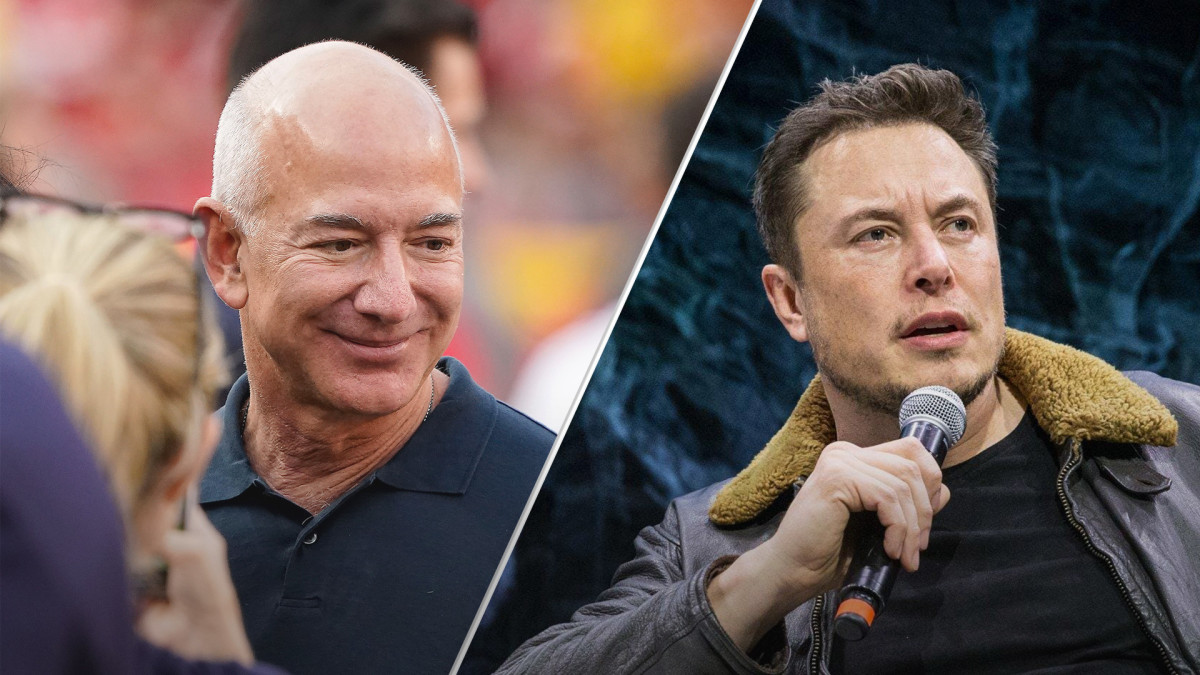
Elon Musk has achieved market dominance in numerous verticals. With Tesla (TSLA) -), he leads the electric vehicle industry. And with SpaceX, he leads the space exploration industry; this year, Musk said, SpaceX was responsible for delivering 80% of all mass to orbit. Next year, he expects that number to rise to 90%.
Despite SpaceX's entrenched lead, there are other players looking to eat into SpaceX's market share. Prominent among them is Blue Origin, Amazon (AMZN) -) founder Jeff Bezos' space company. Though Blue Origin remains behind schedule (and behind SpaceX) on its upcoming launch efforts, Bezos has a second arm of the business, run by Amazon, that will soon enter orbit.
Related: Jeff Bezos Makes a $120 Million Move Against Elon Musk
The arm, Amazon's Project Kuiper, a broadband satellite internet project designed to compete with SpaceX's Starlink satellite constellation, is targetting a milestone launch on Oct. 6.
A United Launch Alliance (ULA) Atlas V rocket is standing by to take two prototype Project Kuiper satellites into low-Earth orbit, allowing Amazon to test the technology pending the company's full-scale production plans for 2024.
“We’ve done extensive testing here in our lab and have a high degree of confidence in our satellite design, but there’s no substitute for on-orbit testing,” Rajeev Badyal, Project Kuiper’s vice president of technology said in a statement. “This is Amazon’s first time putting satellites into space, and we’re going to learn an incredible amount regardless of how the mission unfolds.”
More SpaceX:
- Elon Musk hints at the bold future of SpaceX's Starship program
- Elon Musk says SpaceX Starship is ready to launch; regulators don't agree
- Jeff Bezos' Blue Origin is purposefully lagging behind Elon Musk's SpaceX
Once deposited in orbit, Amazon will test all three components of its planned network: the satellites themselves, the customer terminals and its global ground-based communications network.
When the mission is complete, Amazon said it plans to de-orbit the two satellites to declutter the already-busy low-Earth orbit region. The company is planning to launch its first production satellites in the first half of 2024 and will begin beta testing with commercial customers by the end of the year.
Amazon plans to deploy more than 3,200 satellites over the next six years as it expands Project Kuiper
Musk's Starlink, which was made available to the public in 2020 and has gained more than 1.5 million users, earned the company $1.4 billion in revenue last year
Starlink already has more than 4,500 Starlink satellites in orbit and is launching more on a regular basis, with eventual plans to have more than 40,000 satellites in orbit.
Get investment guidance from trusted portfolio managers without the management fees. Sign up for Action Alerts PLUS now.







